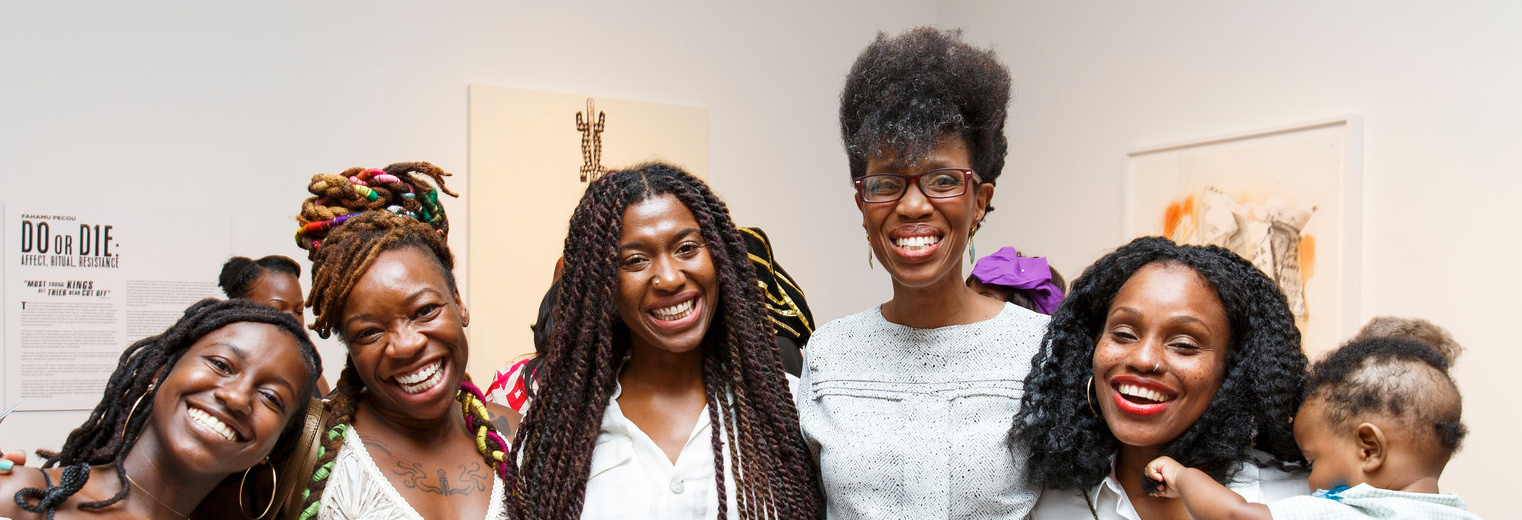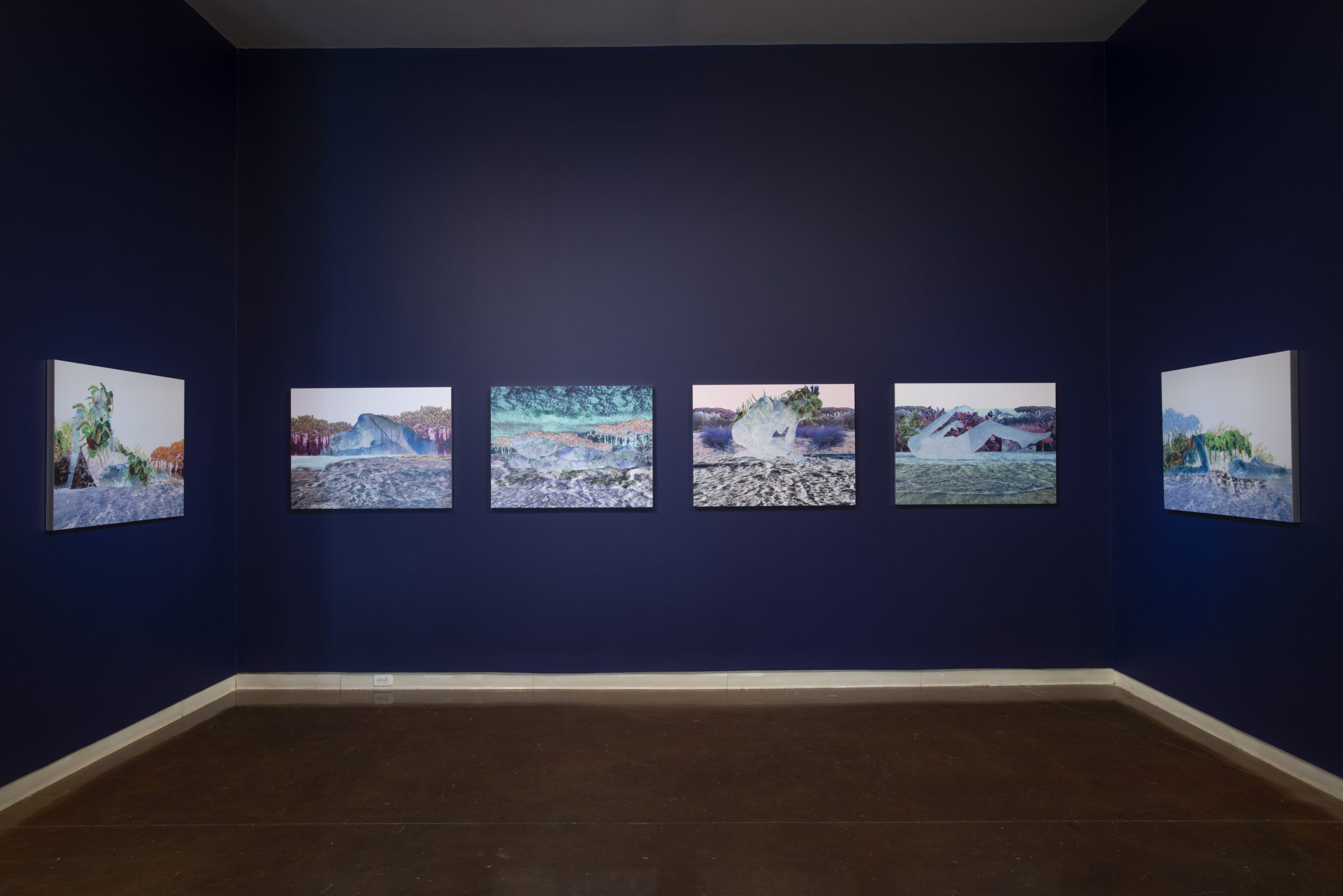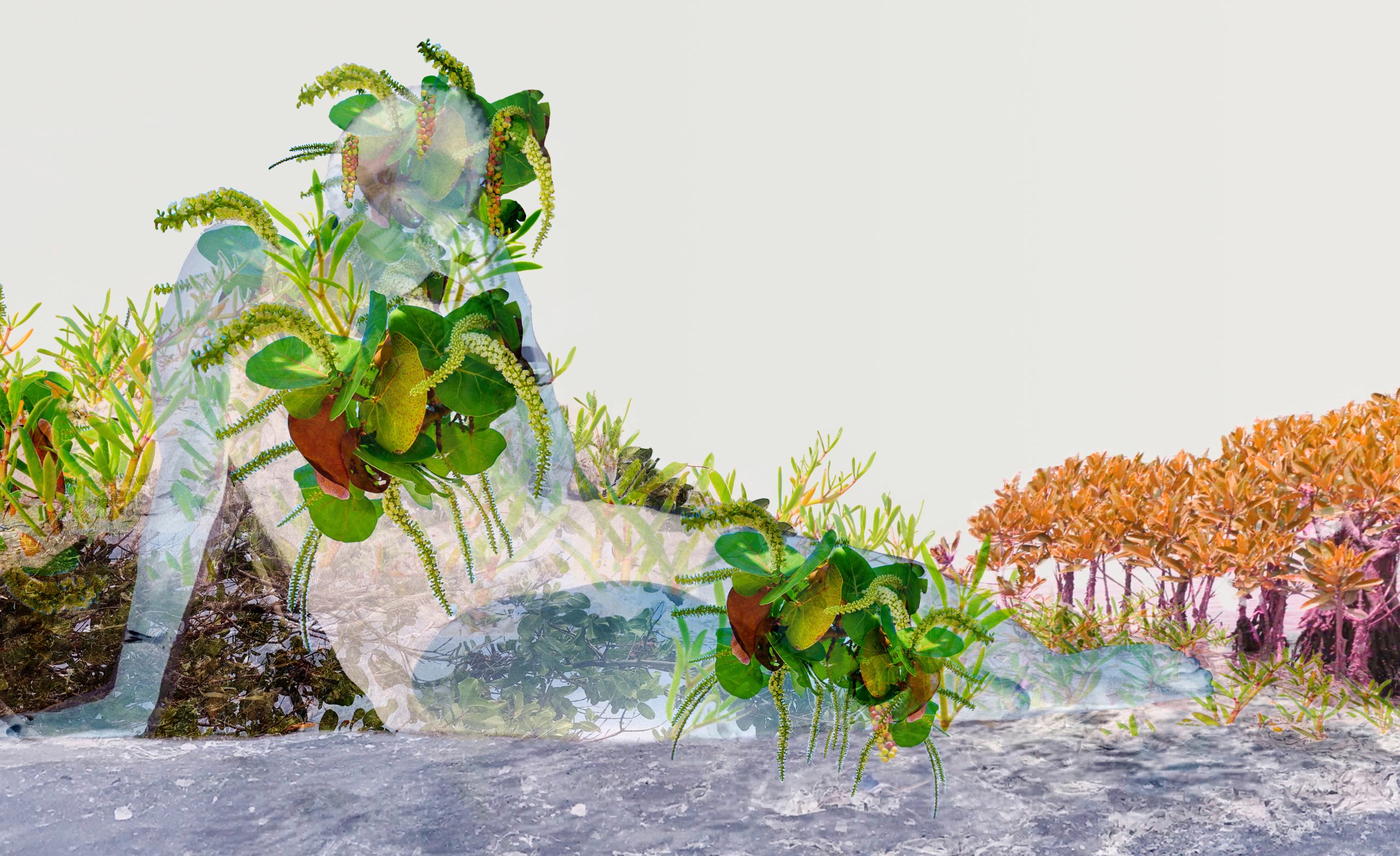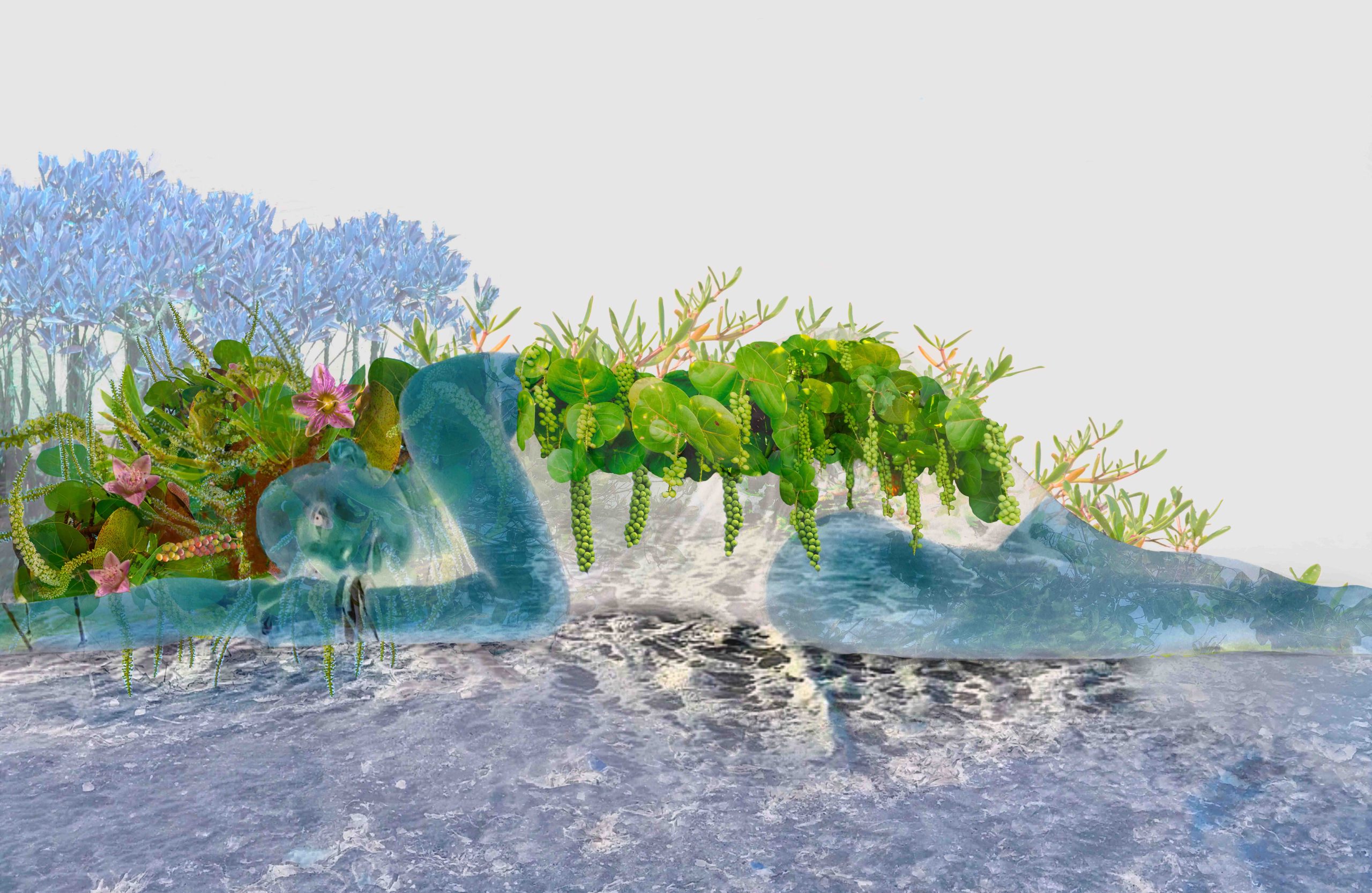


Our fall intern Myles Lemoine expands on the moment of creation, influences, and layered meanings behind La Vaughn Belle’s series For Those of Us Who Live at the Shoreline.
When first asked about this particular series, La Vaughn Belle replied, stating, “Every artist has their COVID-19 work.” She paused and motioned, clarifying further: “And this is mine.”
In the realm of digital art, La Vaughn Belle’s work, For Those of Us Who Live at the Shoreline, emerges as a profound testament to history, self-identity, and the digital reclamation of cultural narratives. As Belle herself describes it, this body of work represents her COVID-19 work, a creation born within the crucible of the global pandemic, encapsulating the zeitgeist of a collective shift in artistic exploration, inspired by Audre Lorde’s A Litany for Survival:
“For those of us who live at the shoreline
standing upon the constant edges of decision
crucial and alone.”

This series stands out as a unique fusion of visually manipulated flora intertwined with her own body—a wispy, feminine protector threading through the narrative. At its core, Belle’s exploration delves into the historical context of Saint Croix, navigating the shadows cast by Western colonization. The art becomes a vessel for the collective memory of the Virgin Islands, pushing against the imprints of colonial history through intentional digital reclamation.
The intricacies of personal identity against the backdrop of cultural heritage and contemporary challenges unfold within Belle’s work. Metaphorically etched plant life symbolizes the delicate process of self-reclamation, mirroring the resilience inherent in island life against external forces. The depiction of natural resistances, such as mangroves, serves as both a literal and symbolic boundary in her quest for digital and personal reclamation.

In the unprecedented arena of the COVID-19 pandemic, artists like Belle found new frontiers within the digital sphere. This global shift echoed in her work, prompts contemplation on the fabric of collective memory and shared history. While Belle does not draw inspiration from Yuval Noah Harari, Harari’s words in Homo Deus: A Brief History of Tomorrow may resonate, stating, “Our choices shape our future more than our genes.” Here instead, however, Belle prompts us to consider that our choices shape not only our genes but also our lands and, conversely, the interplay of historical narratives, self-identity, and the profound impact of the digital age on cognitive processes.
Belle navigates the intricate tapestry of her cultural heritage, offering a resonant narrative that transcends the boundaries of time and technology. In doing so, she not only invites but urges viewers to reflect on their own journeys of reclamation and rediscovery within the broader context of collective memory and shared identity.
Written by Myles Lemoine